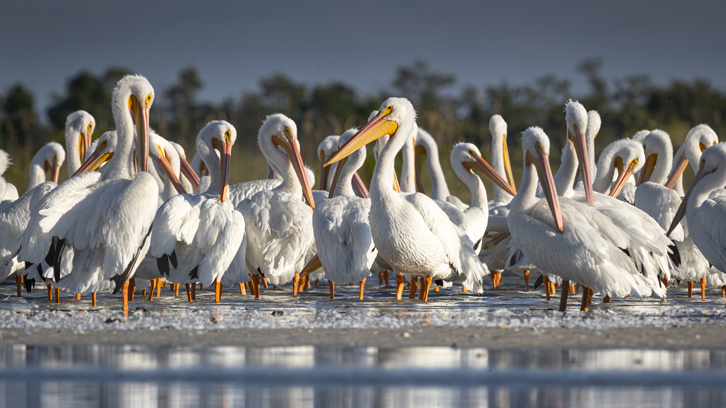The welfare of birds with restricted flight

The welfare of zoo birds kept under flight restraint has been studied by researchers of the UAB and the University of Freie with great white pelicans from German zoos. The scientists have evaluated the well-being of the animals through the ethological study and the levels of stress hormone corticosterone. The results show that the flight restriction does not influence the assessed welfare criteria, although the environmental conditions do. To confirm this, further studies are needed to provide more scientific data on other bird animals in captivity.
For over a century, the practice of deflighting has taken place in zoological collections in order to ensure birds remaining in open-topped enclosures. Over time, efforts have been made to improve or develop new techniques, reduce risk of complications during deflighting and minimize stress and pain during the procedure. A wide variety of opinions exist as to why deflighting should be outlawed, why it is necessary, or how it has the potential to improve birds living conditions.
However, most are based on assumption or issues unrelated to welfare. Surprisingly, to date, no scientific data have been published on the welfare implications of deflighting for the commonly deflighted bird species. In response to this gap in the knowledge, researchers from the UAB, the Freie Universität Berlin and several German zoos have collaborated to objectively assess the welfare of deflighted birds.
Three groups of animals were compared: irreversibly deflighted pelicans that were pinioned or extirpated, reversibly deflighted individuals that were feather-clipped, and airworthy pelicans that were able to fly. To obtain an objective overview of whether the welfare of deflighted birds showed differences compared to airworthy birds, two independent research methods were compared: behavioural observation and the measurement of feather corticosterone levels, the main stress-related hormone in birds.
Results revealed that the flight restriction of pelicans does not seem to impact the welfare indicators assessed in this study (behaviour or stress hormone). Interestingly, the data showed that the living conditions of pelicans (such as group size or space availability) may influence more importantly the welfare of these birds.
In order to confirm the results obtained, the research group is designing further studies that will provide more scientific data on animal welfare and living conditions in zoos.
1. Animal Behavior and Laboratory Animal Science, Institute of Animal Welfare, Freie Universität Berlin
2. Vogelpark Marlow
3. Zoo Nuremberg
4. Institute for Veterinary Epidemiology and Biostatistics, Freie Universität Berlin
5. Karlsruhe zoological garden
6. Veterinary Faculty, Universitat Autònoma de Barcelona
7. College of Veterinary Medicine, Western University of Health Sciences
References
Haase, G.; Baumgartner, K.; von Fersen, L.; Merle, R.; Wiegard, M.; Will, H.; Reese, L.; Tallo-Parra, O.; Carbajal, A.; Lopez-Bejar, M.; et al. Feather Corticosterone Measurements and Behavioral Observations in the Great White Pelican (Pelecanus onocrotalus) Living under Different Flight Restraint Conditions in German Zoos. Animals 2021, 11, 2522. https://doi.org/10.3390/ani11092522

